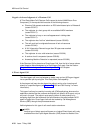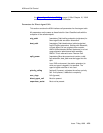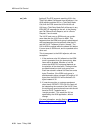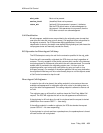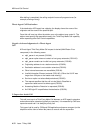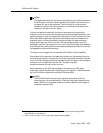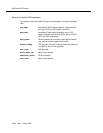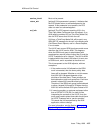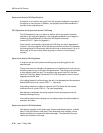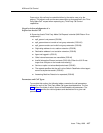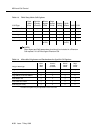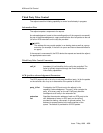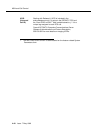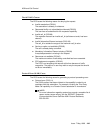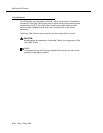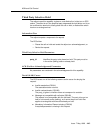
ASAI and Call Control
4-36 Issue 7 May 1998
Supervisor-Assist Call Classification
A classifier is not used for this type of call. Call progress feedback is reported to
the adjunct in event reports. In addition, call-progress and audible feedback is
provided to the originating user.
ECS Operation for Supervisor-Assist Call Setup
The ECS attempts to set up a station-to-station call for the agent’s extension
specified in the originating address. If the originating address is not a logged-in
member of the specified split, the Denial Event Report is returned
(cause=CS3/15 — Agent not logged in).
Once the call is successfully originated, the ECS does not drop it regardless of
outcome. The only exception is the denial outcome which results in the intercept
tone being played for 30 seconds, after which the call is disconnected. It is up to
either party on the call to drop (either by going on-hook or via a third-party
request).
Supervisor-Assist Call Originator
In order for the call to be placed, the calling party must be logged into the
specified split.
The set must have an available call appearance for origination and must not be in
the talking state on any of the other call appearances. The calling party is allowed
to have another call(s) on hold. The originator may go off-hook first, and then
issue the Third Party Make Call request. The ECS originates the call on the call
appearance with dial tone.
If the calling endpoint is off-hook busy, the call is not attempted and the request is
denied (NAK/return error, cause=CS0/17 — User busy).
If the calling endpoint is unable to originate, the ECS denies the call request
(NAK/return error, cause=CS0/18 — No user responding).
After dialing is completed, the calling endpoint hears call progress tones (for
example, alerting or busy).
If the calling endpoint has a display set, the display shows the called endpoint’s
extension and name.
Supervisor-Assist Call Destination
Call delivery depends on the station type, station administered options, and talk
state. Priority call delivery rules apply. If the destination has a display, normal
display interactions for supervisor-assist calls apply. The destination does not
need to be a member of the split.



